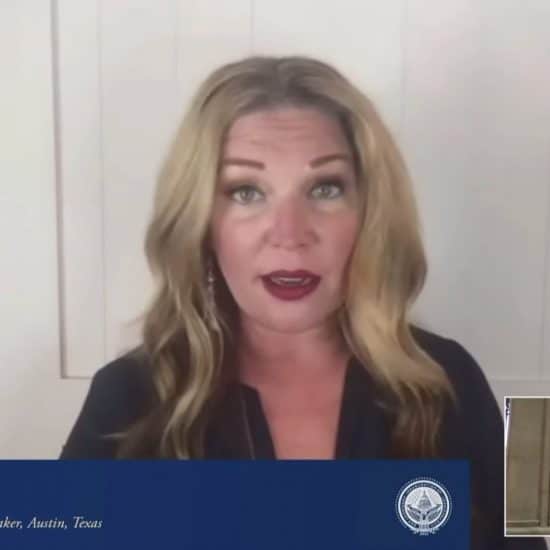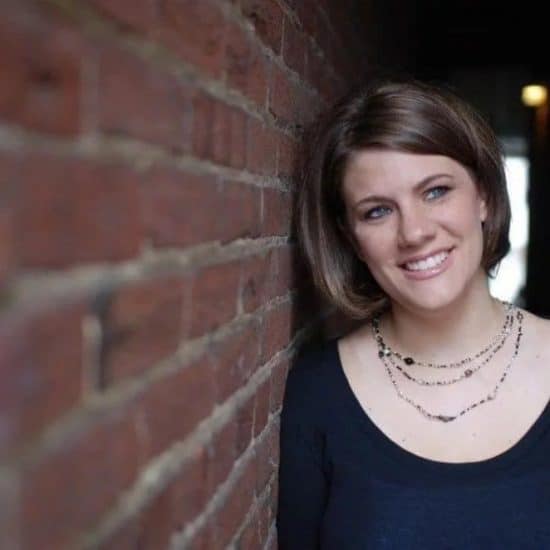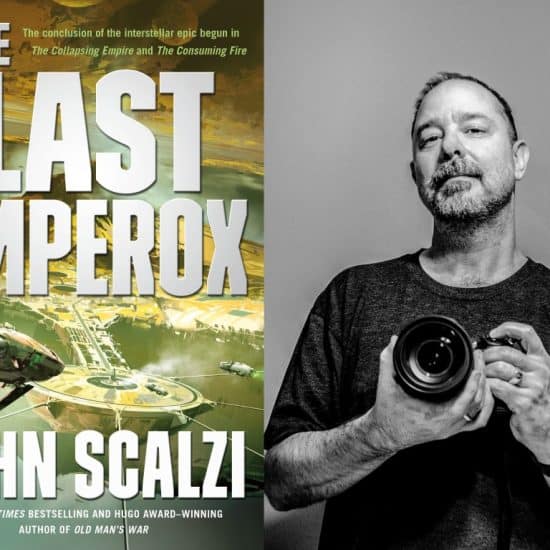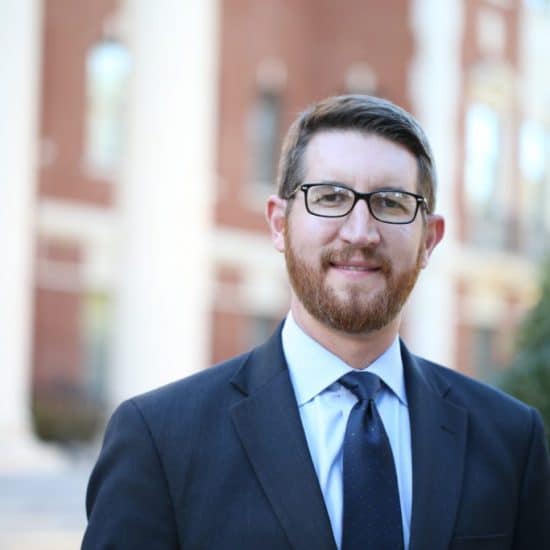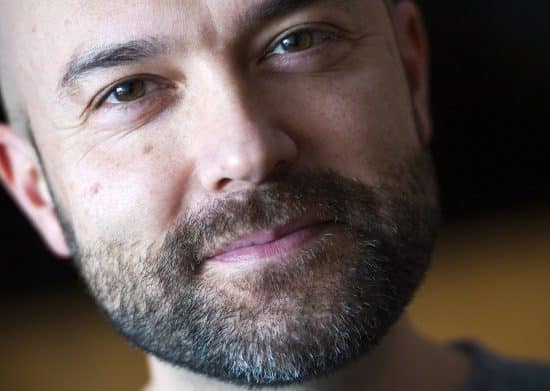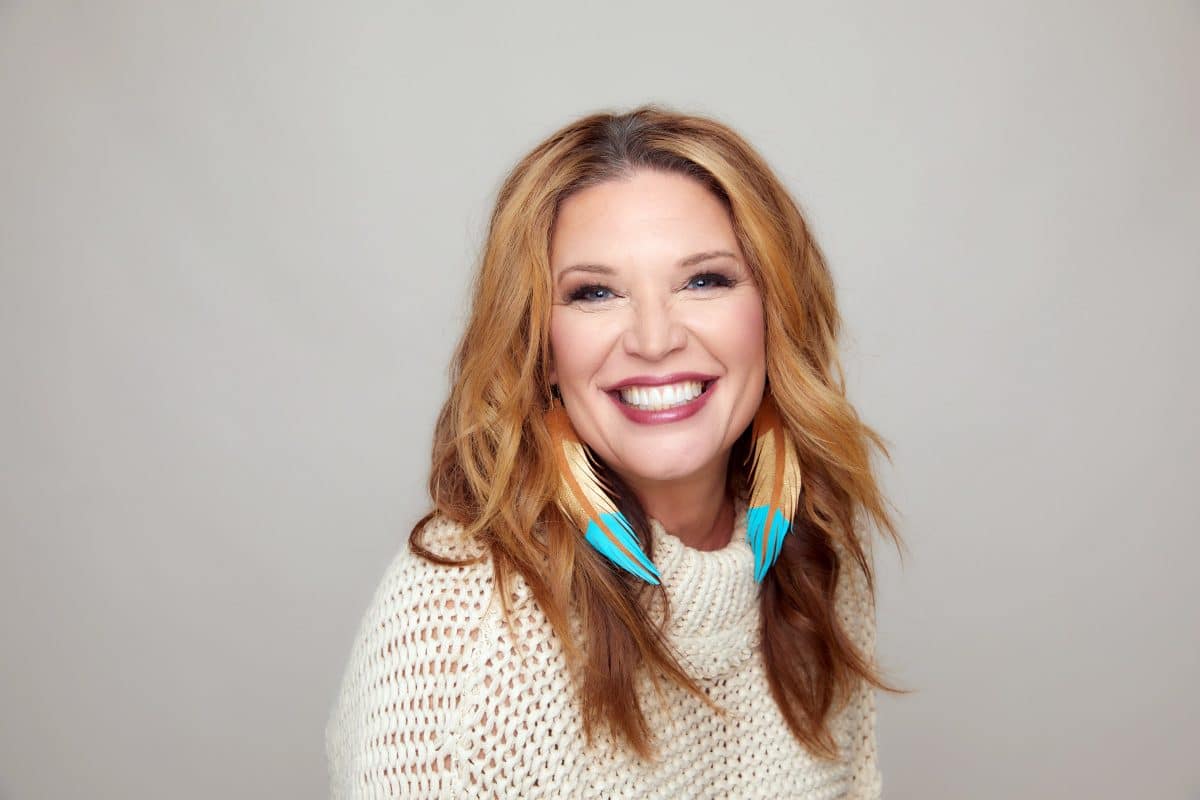
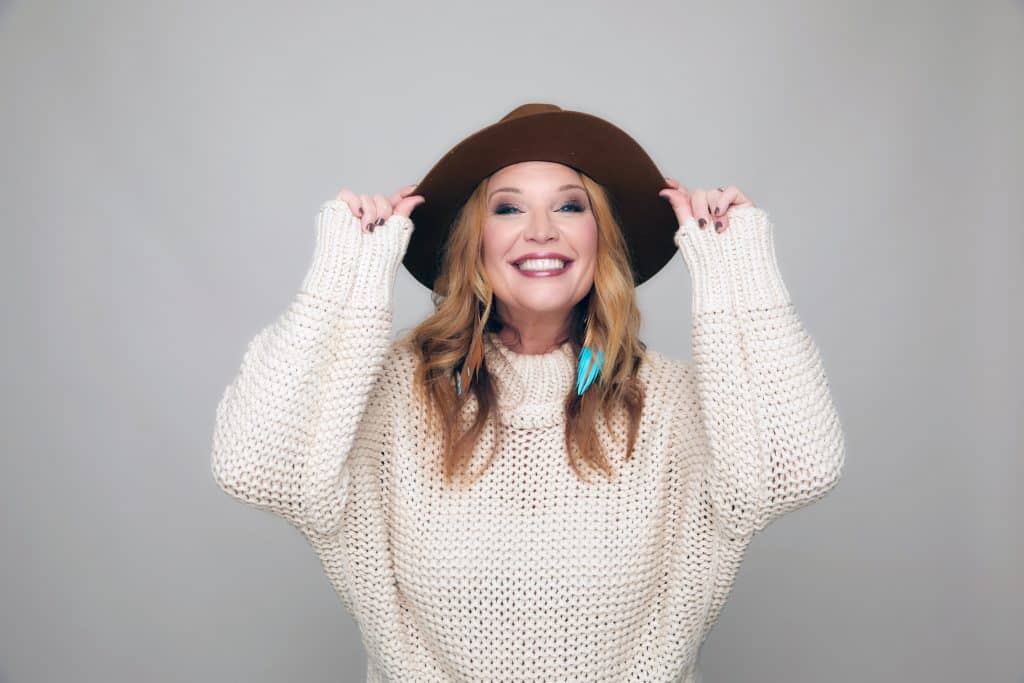
Author Jen Hatmaker. Courtesy photo
(RNS) — Jen Hatmaker knows the cost of standing up for what she believes in.
Once a “darling” of evangelical Christianity, LifeWay Christian Stores pulled Hatmaker’s books from its shelves in 2016 after she expressed support for the LGBTQ community in an interview with Religion News Service. Her popular book 7: An Experimental Mutiny Against Excess was put out of print, she said. Her next book contract was canceled, too.
Hit pieces followed. So did the nightmares.
But the freedom that came with it has been worth it, according to the bestselling author and speaker.
“The only regret I have is that I did not do this sooner,” Hatmaker said.
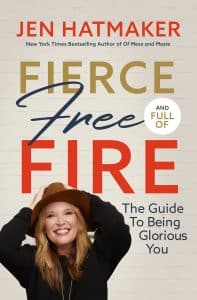
Fierce, Free and Full of Fire: The Guide to Being Glorious You by Jen Hatmaker. Courtesy image
In her book Fierce, Free and Full of Fire: The Guide to Being Glorious You, released earlier this week, she encourages her readers to experience the same freedom she has found by living into their authentic selves, no matter what the cost.
“It is daunting for so many women to even just imagine staring down a brand new path of truth telling. I know it,” she said.
“I believe if we can trust truth to do what it has always told us it will do — which is lead us into life, which is lead us into fullness and wholeness and goodness — then whatever the cost, I promise it’s going to be worth it to pay it, and great is its reward, honestly.”
Hatmaker spoke to RNS about her latest book, what she learned from her experiences as an outlier in evangelicalism and what is making her feel hopeful during the coronavirus pandemic.
This interview has been edited for length and clarity.
You have described this book as “the one where I laid it down.” How does this topic lend itself to laying it all out there?
This book essentially is the culmination of probably the most important work of my adult life — of ownership and agency, of integration and honesty. I’ve always told a little bit of the truth in everything I’ve written, but this is all of it. This is the whole story. This is everything that has served me and brought me into probably the first place of freedom I’ve ever actually lived in as a grownup.
I didn’t expect obviously to release this in the middle of a pandemic. That is unfortunate, for sure, except it’s never the wrong time for women to decide to live in the authority of their own life in full freedom. So why not now?
In a recent Facebook Live, you said, “I think books mean something right now.” What do you think books like Fierce, Free and Full of Fire have to offer in this pandemic moment?
This is a real tragedy. It’s scary, and people are worried, and some people are sick, and there’s loss everywhere. Weirdly, inside of all of that suffering exists the possibility of an invitation to really evaluate, like, who am I, where am I, where have I been, and where am I going? Because so many things that generally require our attention have been pushed off our plates. And so it is possible right now to get a little bit still and to get a little bit quiet and to let words and stories and ideas move us and affect us and change us like they always have — like they still can even now. And so books still matter.
I’m finding that people’s words are reaching me in a real tender way right now, maybe even more so than when I am busy and distracted and overextended. I hope that for “Fierce,” obviously, but all the words right now that creators and leaders are putting out into the world can serve the community as we begin to steer the ship into recovery.
You share a few stories about your experiences as an outlier in evangelical Christian subculture, including the fallout after you publicly affirmed LGBTQ Christians. You describe all the losses that followed and how hard that was for you and your family. And you conclude, “I am recovered enough to finally say: I did not deserve that.” You mention this is “a little story I’ve never talked about in full.” Why now?
I determined at the onset that I was going to tell the whole truth. It wouldn’t serve my community if I didn’t. If I didn’t tell the truth about either courage or if I didn’t tell the truth about the cost, neither would be fair.
I was very much a darling of white evangelical women subculture. It’s a real niche, but I was succeeding there and I was beloved there and very favored and very centered, and I built an entire ministry there, a whole career. What was so devastating at the beginning was noticing all the places that, for me, the fabric was beginning to tear. And it was in more than one way. It was being located inside a system that was still very much operating under the rules of patriarchy and misogyny — nobody would want to admit this, but white supremacy and privilege, power differentials, where it was very clear who was right and wrong; who was in, who was out; who was included, who was excluded.
The thing about that community is that the currency is belonging. When you are following all the rules, when you are hitting all the marks, when you are staying inside the lines, you are rewarded. Your reward is you get to be a part of it, you get to belong, you get to stay centered. But belonging is also used as a punishment. And so when you step outside of any of those lines, when you question, when you push, when you challenge, your belonging is the first thing that is revoked. And I knew it. I knew how the game works. I’d seen it happen to other people.
I got to the point where I said to myself, “Jen, you either get to hang on to your career as you know it or you get to hang on to your integrity, but you don’t get both. These things are now at odds.” I picked my integrity, and it’s the best decision I’ve ever made in my life.
Was there loss? Yes. I hope I did not gloss over that in Fierce. I hope I told the truth about that because the cost was high. It was incredibly punitive. It was just loss upon loss upon loss for a while. I didn’t know how I’d ever get to the bottom of it, and I didn’t ever know if it would end. I didn’t ever know if I could rebuild. I had no idea. My book contract was canceled. My book was pulled out of print and off shelves, and I had been completely ex-communicated overnight from the community that I’d served for so long, and everything was just falling apart.
Honestly, everything after that has been rebuilt in such a beautiful way — my community, my work, everything — is just icing on the cake. Sitting deeply in my own integrity was its own reward.
You also write about how a conservative Christian publisher decided it was unable to collaborate with you anymore in 2014 after you wrote a blog post confronting another evangelical author who had claimed that World Vision allowing LGBTQ employees signaled the “collapse of Christianity”— and yet they weren’t concerned about this male author’s words. Do you think there is a double standard for what men and women are allowed to say within evangelicalism, or who’s allowed to be controversial?
Of course. Oh my gosh, it’s so clear. All of these things are so much easier to see from the outside. When I was located on the inside of those systems, even though I was — as all women were in that system — very, very second place, the thing is if you’re the right type, if you look right, if you say the right words and you hit your marks, that system can still serve you. And so I essentially identified with my captor.
Now I can look in and just see all of these women who are so gifted, so intelligent, so wise and good and powerful, such incredibly talented teachers and preachers still following the rules of the patriarchy, still conceding their own gifts to the world. I just can’t handle it. It breaks my heart. It’s not even subtle inside that world. It’s overt. It is: “You do not have authority to lead.” “You will be subservient here.” “The men are in charge — specifically, the white men.” It’s such a constant state of gaslighting that you don’t even know that you have permission to challenge the system that is still keeping you disenfranchised. Any time you have a system like that, that is predicated on power differentials, it is at the expense of someone. The status quo is never neutral. Somebody paying the bill. I think women are still paying the bill, and they’re adding a tip.
It is the work of an adult lifetime for women like me to undo those messages and relearn what’s true because that was the air we breathed. But our daughters are not the same. They have a sense of their own incredible presence on this earth and what they have to offer and who they really are. It’s going to be exciting to watch.
You mention the activist community isn’t necessarily a perfect fit either and the cancel culture that exists there. Can you talk about why it’s important to show up in these spaces that aren’t a perfect fit anyway?
Part of the whole game is that our end goal is to essentially — whatever room it is — read the room and give it what it wants. Women are good at that. We can usually size up a room pretty quickly. Part of our cultural conditioning is that our job has always been to keep the temperature in that room stable. And so what I noticed is, there is an impulse when you exit one room and enter another to then do the exact same thing, simply shape-shift from one room to another. It’s possible because we over-correct — it’s kind of a human nature impulse.
I found myself in a couple of rooms at once, and if I was integrated, if I was telling the truth, if I was holding room for nuance or if I was prioritizing dialogue around a certain idea or if I was saying, “You know, I’m not sure what I think about that yet,” or even, “I have a different opinion,” that’s punished in all the rooms. This is all we really have left, which is to simply be true all the time — that there is one you in every room you live in.
It may be hard to live in integrity. It may require a lot of courage to be true in every room. But I am telling you, there is a peace in it, a beauty, a joy, a grace, a rest. The prize of doing this work and standing firmly in it is absolute freedom. When I look at the life I have right now compared to what I had five years ago — the community that I have, the way I am able to lead, the conversations I now feel safe to not just engage, but engage publicly, the church we have helped build and shape, the way in which the communities that I have chosen to stand by and with and for — I cannot believe how beautiful my life is. It’s everything I wanted five years ago, and I had no idea how to get to it. Well, I did, but I was too afraid to burn everything down. The only regret I have is that I did not do this sooner.
In addition to the book, you just released a “Quarantine Queens” series on your podcast, “For the Love with Jen Hatmaker.” What’s been the most helpful takeaway from that for you?
My podcast team just hustled that series into production. Everything, all the live stuff, was canceled. All the events, all that stuff we had in play for this season (to promote Fierce, Free and Full of Fire) was all canceled, but we were like, podcasting is still a possibility, so let’s just double down on our work.
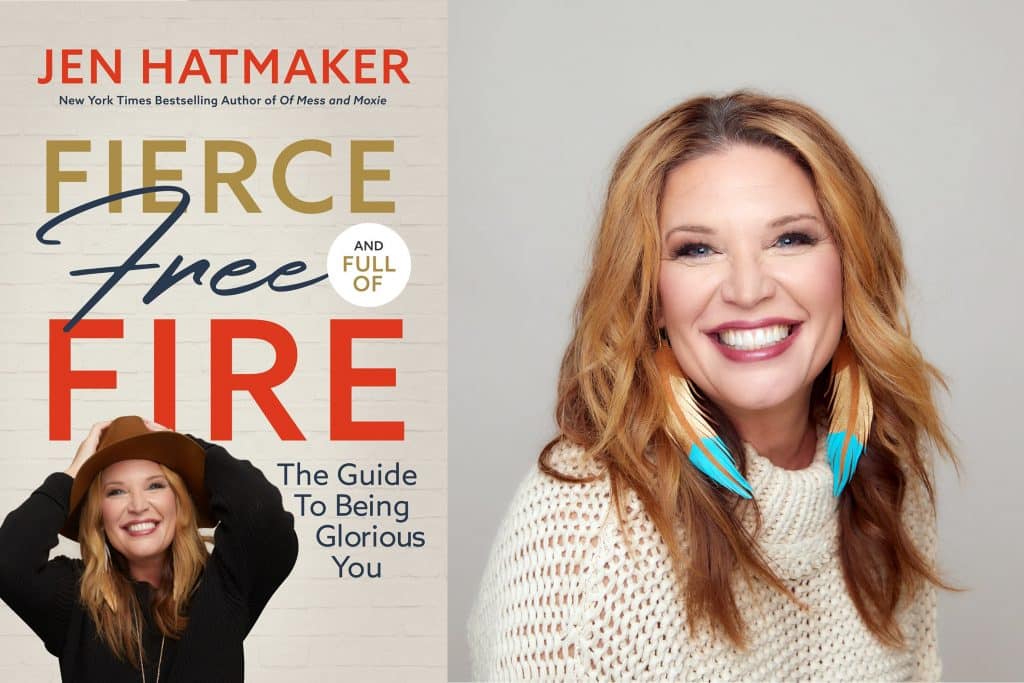
“Fierce, Free and Full of Fire: The Guide to Being Glorious You” and author Jen Hatmaker. Courtesy images
I think what’s been so helpful — it’s more of a high-level idea than one specific moment inside that series — is we are in this together. We tried to dial in to the various pain points of the quarantine and bring somebody in who could speak really saliently to that exact felt need in the community. But even across the broad range of topics we covered affecting us all right now, I just walked away from that series going we’re together right now. We are having these ubiquitous experiences right now and it’s kind of this incredible equalizer.
I know a lot of us are already turning our eyes to the future and curious about what this moment in time is going to mean for us. I’d like to say I’m hopeful. Where we lived moving into this moment, we were absolutely siloed. I mean, everything was polarized. Everything was partisan. The divides between us were like the Grand Canyon — so entrenched, so impossible to breach. But, right now, we’re kind of all neighbors again. We’ve flattened a different curve, and it’s been really healing to watch humanity come together in this way. And so I hope we can hang onto this. I hope we remember that really what’s true is we are our brothers’ and sisters’ keepers, and there’s possibility in front of our culture to not necessarily just return to that angry, furious, polarized place we found ourselves in at the beginning of this.

